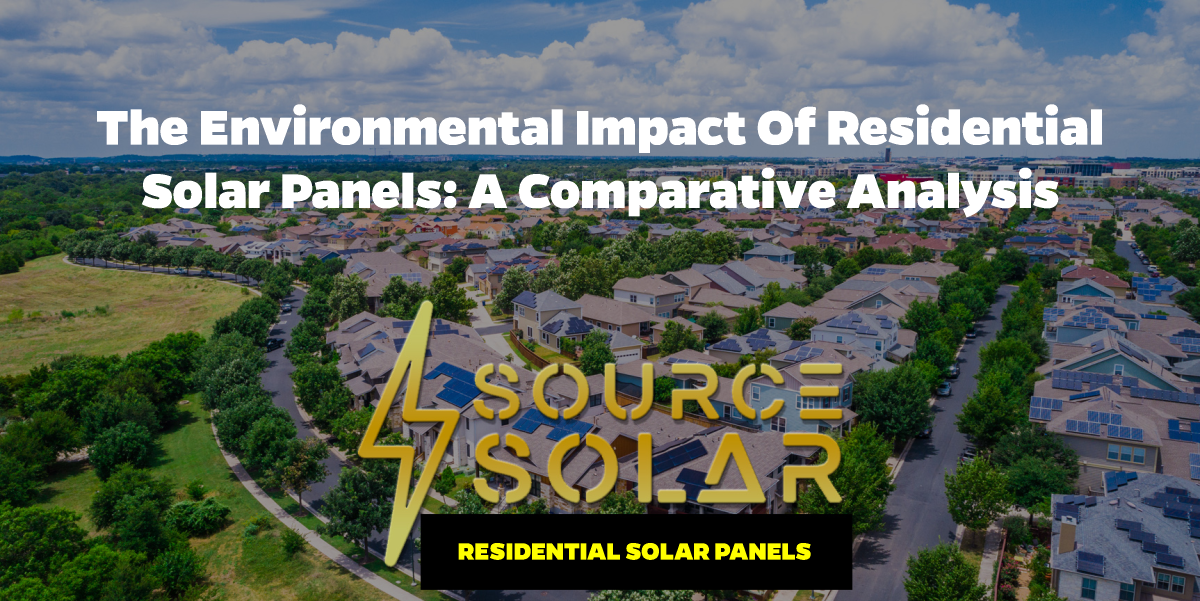The Power of Residential Solar Panels
As a top-rated solar company in Iowa City, IA, Source Solar is a firm believer in renewable energy. Over the years, we have seen a significant surge in demand for residential solar panels. This surge isn’t surprising given the numerous advantages these solar systems offer – reduction of electricity bills, increased property value, and most importantly, a positive environmental impact.
Understanding the Environmental Impact of Residential Solar Panels
A home solar panel system, once implemented, harnesses the sun’s energy and transforms it into electricity. This transition to a renewable energy source initiates a chain of environmental benefits. One of which is the substantial decrease in carbon footprint.
Traditional electricity is often sourced from fossil fuels such as coal and natural gas. When these fossil fuels are burned to produce electricity, they emit harmful gases that are primary contributors to climate change and air pollution. Conversely, residential solar panels generate electricity with little to no greenhouse gas emissions. Therefore, using solar panels can significantly reduce the amounts of harmful emissions put into our atmosphere.
A Comparative Analysis: Residential Solar Panels vs Traditional Electricity
To provide a clearer perspective, let’s make a comparative analysis between the environmental impact of residential solar panels and traditional electricity.
One of the fundamental comparisons is the carbon dioxide emissions. The US Environmental Protection Agency indicates that the average American home generates about 6,677 kilograms of carbon dioxide annually if it uses traditional electricity. In comparison, the same house using solar panels can decrease this figure by more than 80 percent.
Another essential factor to consider is the water usage. A report from the Department of Energy’s National Renewable Energy Laboratory reveals that photovoltaic (PV) power – the technology used in solar panels – consumes up to 21 times less water than traditional electricity generation techniques. This conservation of water resources is beneficial especially in areas suffering from water scarcity.
Saving Our Planet One Solar Panel at a Time
Apart from the reduced carbon emissions and water usage, there are a few more factors that highlight the environmental advantages of solar panels. Renewable energy technologies such as solar panels significantly contribute to the decrease in pollution, a major global issue. Also, they don’t require any external fuel source, unlike conventional power plants, minimizing the likelihood of harmful oil spills or similar environmental hazards.
Residential solar panels also promote energy independence. By generating your own electricity, you significantly decrease our reliance on unsustainable energy sources, bolstering our collective effort towards a sustainable future.
The Future of Residential Solar Panels
The future of residential solar panels looks bright. As the world continues to recognize the environmental impact of our energy sources, solar panels are seen as a key component in achieving a sustainable future. Increased efficiency and affordability of solar systems only serve to underpin this status.
Moreover, innovations are continually unfolding within the solar industry. Technologies like energy storage and solar plus storage systems are under active development, paving the way for a more widespread implementation. These technological advancements promise a more resilient, efficient, and sustainable solar-powered future.
Conclusion
In comparison to traditional methods of electricity generation, residential solar panels exemplify a distinct environmental advantage. From the significantly reduced carbon emissions to decreased water usage, the benefits are compelling and contribute to mitigating climate change.
Source Solar, as a trusted solar company in Iowa City, IA, stands at the forefront of this change, advocating for the adoption of renewable energy sources for homes. We firmly believe that the future lies in sustainable living, and residential solar panels are a crucial step in that direction.
Together, let’s illuminate a path toward a sustainable future, one solar panel at a time.









